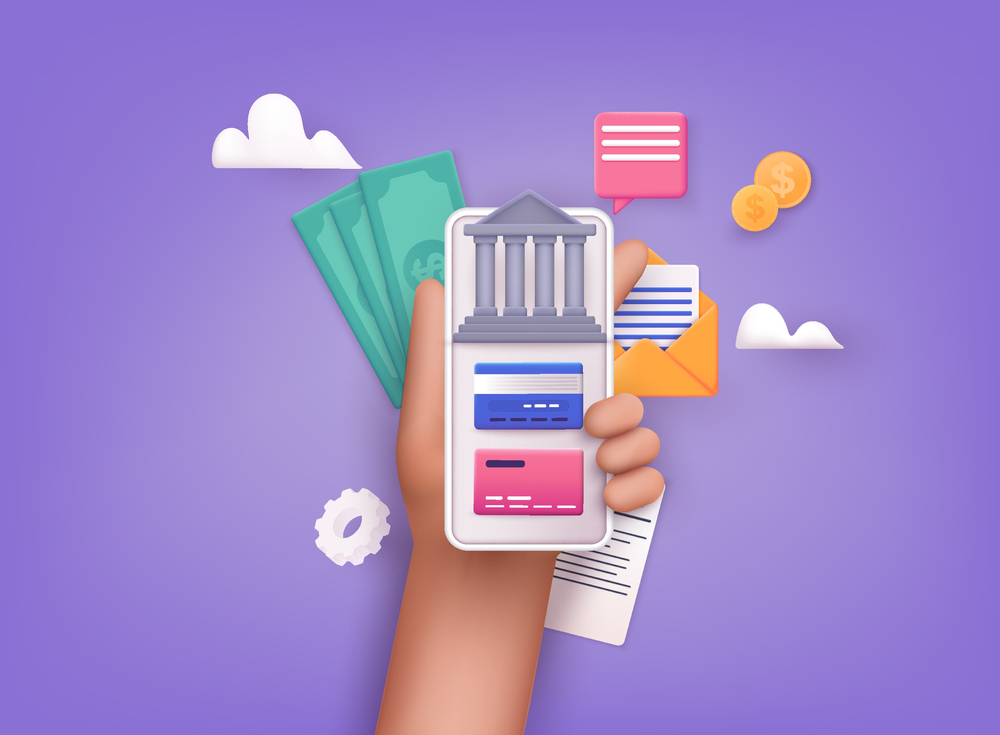

People look for a new bank due to a change in life circumstances or for reasons such as avoiding fees, earning more interest, convenience and so on. As the number of products of financial institutions increase, people have many options to choose from.
Hassle-free services and ease of access to your funds are the most important criteria in choosing the right bank. There are more options ranging from traditional banks and credit unions to large national and online-only banks. If you are planning to switch your bank or establish your first bank account, take these steps to ensure that you are making a smart choice:
Understand and identify the type of bank account you need

Source: Shutterstock
Banks have a lot to offer and it is wise if you stick to an account that fulfils the criteria of your requirements. Banks provide accounts for managing and saving money as well as credit cards and loans such as mortgages. You don’t have to choose only one bank for all your banking needs or to have just one account type. For example, if you have a checking account at one bank and two savings accounts at different banks, it could be a strategy to avoid fees. Here’s a look at the most common bank accounts:
Chequing accounts are utilised for everyday spending. You can make purchases with debit cards, pay bills, send money online and various other features. If you plan to replace your chequing account, you can opt for a bigger, traditional bank that carries multiple types of chequing accounts. Or if you are planning to attain services like a high-yield chequing account, you can opt for credit unions or online banks.
Savings accounts can help you make short-term savings and earn interest. Banks usually limit the number of withdrawals per month on this type of account and money in this account might be used within five years. If your goal is to save more money for a short-term goal like a downpayment for a car or any other expensive purchase, you can opt for a high-yield savings account. Nowadays, online banks typically pay higher interest rates in comparison to traditional brick-and-mortar banks. The average savings account annual percentage yield (APY) is 0.06%
Money market accounts will help you save money while giving you more withdrawal options in comparison to a regular savings account. Some of the money management accounts provide check-writing abilities and debit cards for ATM access.
Certificate of deposits (CD) is available for protecting a certain amount of cash that is set aside for a big purchase or an investment within five years. CDs lock up the sum for a fixed term at a fixed rate. CDs traditionally have the highest rates among bank accounts. You can access your money before the CD matures, but you’ll likely have to pay fees or a penalty. Rates and terms offered will vary from one bank to the other, so consider your financial goals whether the CDs offered to fit your needs.
Research the available banks in your area
Look for the banks in your area. If you want more personalised services, then opt for smaller banks. Determine the bank fees. Nowadays, several banks charge low or no fees.
The fees that you should watch out for are the monthly maintenance, ATM, and overdraft fees. The average overdraft fee is $33.47. Even opting for an overdraft protection programme (where the bank covers a purchase that you can’t afford) can be expensive. When you are looking for a new bank, find the one that has more lenient policies and low or zero fees. It can be a good option to start locally however, there are many banks with a regional or even national presence.
Check out reviews, ratings and recommendations

Source: Shutterstock
You can easily gain access to thousands of banking reviews online and gain a clear perspective about the financial products of a bank you plan to invest with. You can ask your family and friends about their insights on your most preferred banks.
However, every review will be different, so asking advice from those close to you can be useful. For example, it may be very important to you to have the option to work with someone in person, but that’s not important to everyone. Some people may not mind if support is mostly or entirely online so, taking into account your preferences is the key.
Banks’ websites are the face in today’s market. There are few things worse than having to search a website up and down just to find something very basic. If the website is not user-friendly, you can imagine how terrible your daily banking experience would be.
Most of these banks provide basic services through their app and website such as the ability to transfer funds, pay bills, check balances, and make mobile cheque deposits. However, the digital capability of a bank determines if a consumer will access its services or not.
Moreover, some of the banks are missing features that are in demand, for instance, mobile alerts, the ability to lock credit and debit cards online. There are some cases where online banks don’t even offer a smartphone app.
Find the bank that fits your requirements
You can check every bank’s website to see the products they offer. If you’re an entrepreneur, you’ll want a bank that can provide support, as you build a business. If you are trying to save money then look for a bank with high return on savings accounts.
The right bank for you is the one that gives accessibility. Most of the consumers search for ATM and branch location and the online presence of a bank. Even if the banks are going fully digital, many consumers prefer to have easy access to branches, especially in case of an emergency. Banks also charge out-of-network ATM fees if you use an ATM that is out of their network.
Read the fine prints

Source: Shutterstock
The customer must understand the terms and conditions. You shouldn’t open a bank account without reading what is in the fine print. If you notice a monthly service fee or any other fees, you can ask whether these fees will be waived or not. Make sure your savings will be federally insured by the National Credit Union Administration or the Federal Deposit Insurance Corp. (just in case your bank closes). Watch out for promotional deals that expire. Some banks may offer compelling teaser rates that eventually fall to a much lower rate and it burns a hole in your pocket.